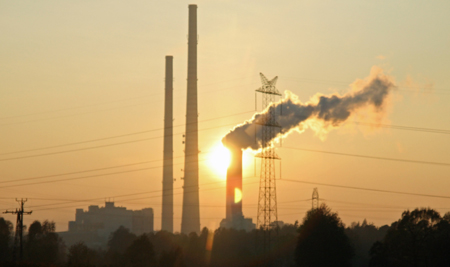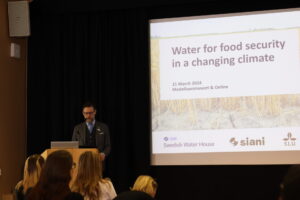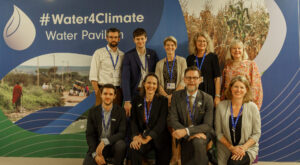Environmental economics panel: draw on local experience to help protect planetary limits
(excerpts taken from Sida press release, Swedish, May 8)
On May 5, Sida (Swedish International Development Cooperation Agency) arranged a Sida Development Talk with Swedish and international researchers to help disseminate knowledge about how environmental economics can contribute to sustainable development. SIWI Chief Economist, John Joyce was moderating.
The effects of climate change are often most evident at the local level. Research therefore needs to help link political decisions with local level experience.
Environmental economics is about the possibility to make rational, economic decisions while respecting the environment and the climate. For sustainability to become a reality however, we need increased capacity and knowledge, strong policy instruments, and a willingness for people to change their behavior.
Today, most climate scientists agree that we have entered a new era, where human activities affect the earth’s climate and its ecosystems.
“We are in a situation with a completely new relationship between people and the planet. The challenge is how we turn this crisis into an opportunity. We both need to adapt to the changes taking place and reduce the risks, as best we can,” said Professor Carl Folke from Beijer Institute in Stockholm.
Scientists sometimes refer to the so-called ‘tipping points’, where development enters a new phase that cannot be reversed. It is often estimated that these tipping points lie 40-50 years in the future, but they always occur at the local level. This can include streams that dry out, or an animal species that ceases to exist.
“People at the local level are often first to experience the consequences of drastic environmental changes. Therefore it is extremely important to study the development at the local level,” said Professor Partha Dasgupta of Cambridge University, UK.
“People at the local level thus have great knowledge of what the warning signs are. The challenge is to bring this knowledge to the national policy level and ultimately reach out on a global level.”
“It requires a combination of incentives, regulations and information,” said Professor Thomas Sterner from Gothenburg University.
Economy must be combined with ecology. The challenge is how we formulate economic policies that allow us to develop our communities and reduce poverty, while staying within the planetary limits.








